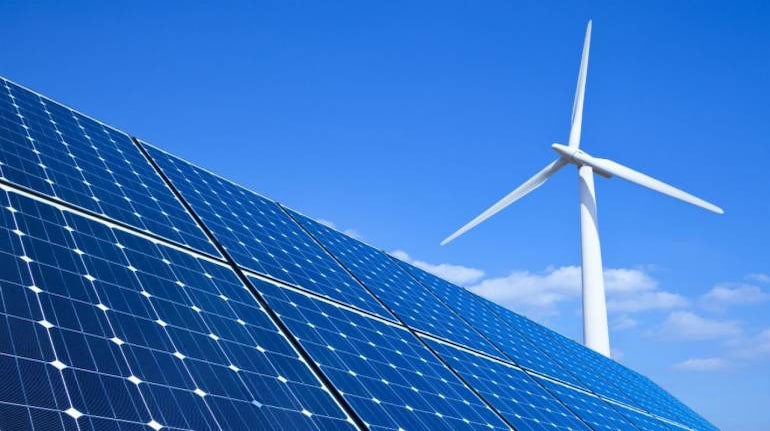



The G20 Delhi Summit under India's presidency will be judged by the New Delhi Declaration, which was adopted unanimously by countries representing 85 percent of global GDP. The manner in which India conducted itself enhanced its reputation on the international stage, and the Declaration serves as a reminder of India's values of peace and unity in times of crisis. If we can follow the path set out in the Declaration, it will be a testament to the scope and vision of a more just, equitable, and sustainable world.
Among the several challenges in the Declaration, nothing was more important than the consensus that the G20 nations arrived at in a very short time. It was heartening to see leaders agree that an effective energy transition will give the world a chance to have a better future. The world’s mightiest nations agreed that a just energy transition can improve jobs and livelihoods, and strengthen economic resilience. The affirmation that no country should face the choice between fighting poverty and fighting for our planet dawned clear. India’s push for developed nations to take more responsibility for their role in the global climate crisis bore fruit.
Finances for energy transitionsGreen financing and financial inclusion to fast-track the energy transition are the need of the hour. The capital requirements of developing countries to facilitate green energy development and the finance required by them to acquire state-of-the-art clean energy technologies by 2023 were made clear. The G20’s promise to achieve net-zero targets implied that all member nations would have a “common but differentiated responsibility” and an equal contribution from everyone, making it a level playing field.
What makes the Declaration truly inclusive is the fact that it restates gender equality as a fundamental pillar of achieving growth. Investing in empowering women and girls has a multiplier effect on implementing the 2030 Agenda. Encouragement for women-led development, bridging the gender digital divide, and driving gender-inclusive climate action are some points that I address in my G20 co-edited volume, Pathways to Equality: Advancing Gender Goals in the G20. It is progressive to have similar ideas reiterated in an agreement of global importance—an assurance that we will step into the future as equals.
The endorsement of the G20 High-Level Voluntary Principles on Hydrogen in the Declaration underscores cooperation in enhancing hydrogen production, utilisation, and standardisation. Progress in multilateral development bank (MDB) reforms, too, is recognised, with an emphasis on accelerating processes, particularly concerning hybrid and callable capital. To achieve this, the private sector will have to step in to have a sizeable impact on climate action and economic transformations. The private sector’s role and the expectations from the Declaration around building resilient global value chains and leveraging the expertise of MDBs to mobilise climate finance have been defined in no uncertain terms. The reaffirmation of the G20 nations’ commitment to achieving the Brisbane Goal 2025 and reducing the gap in labour force participation is another promising highlight.
Commitments to net-zeroWhile developed nations have been urged to revise nationally determined contributions (NDCs) with absolute economy-wide emission reduction targets, developing countries are encouraged to pursue mitigation efforts and adopt such targets as circumstances dictate. A pledge to achieve global net-zero emissions by mid-century is reaffirmed. The G20 also endorses a report on macroeconomic risks from climate change, considering further fiscal and monetary policies. The LiFE program (Lifestyle for Environment)—India’s endeavour to encourage sustainable lifestyles—finds unanimous approval in the Declaration, with emphasis on integrating it into international work programs. This strongly reflects how India has introduced the principles of Resource Efficiency and Circular Economy Industry Coalition in its drive towards sustainability. A victory for the way India thinks about the world as one family, and the need to lead a lifestyle that is conducive to preserving the planet.
Finally, the establishment of the Global Biofuels Alliance is seen as a positive development, acknowledging the pivotal role of biofuels in achieving net-zero emissions by 2050 and recognising significant growth potential for this sector. The New Delhi Declaration, if followed in letter and spirit, is undeniably the most effective way to proceed if we want to hold the increase in the global average temperature to well below 2°C above preindustrial levels. Anything less would not only delay progress, but adversely impact us all—a bargain one wouldn’t want to be a part of.
Vaishali Nigam Sinha is Co-founder and Chairperson of Sustainability at ReNew. Views are personal, and do not represent the stand of this publication.Discover the latest Business News, Sensex, and Nifty updates. Obtain Personal Finance insights, tax queries, and expert opinions on Moneycontrol or download the Moneycontrol App to stay updated!
Find the best of Al News in one place, specially curated for you every weekend.
Stay on top of the latest tech trends and biggest startup news.